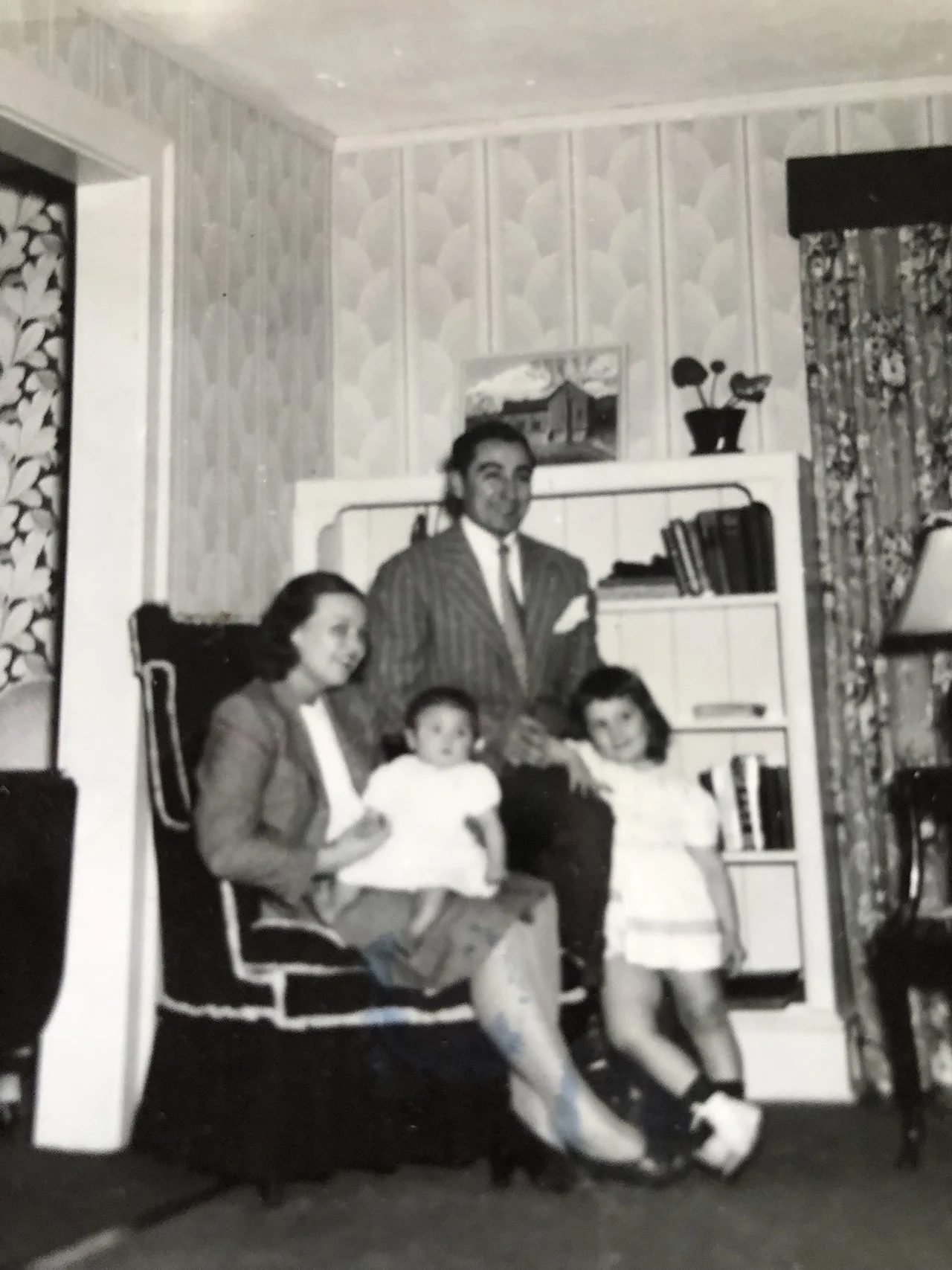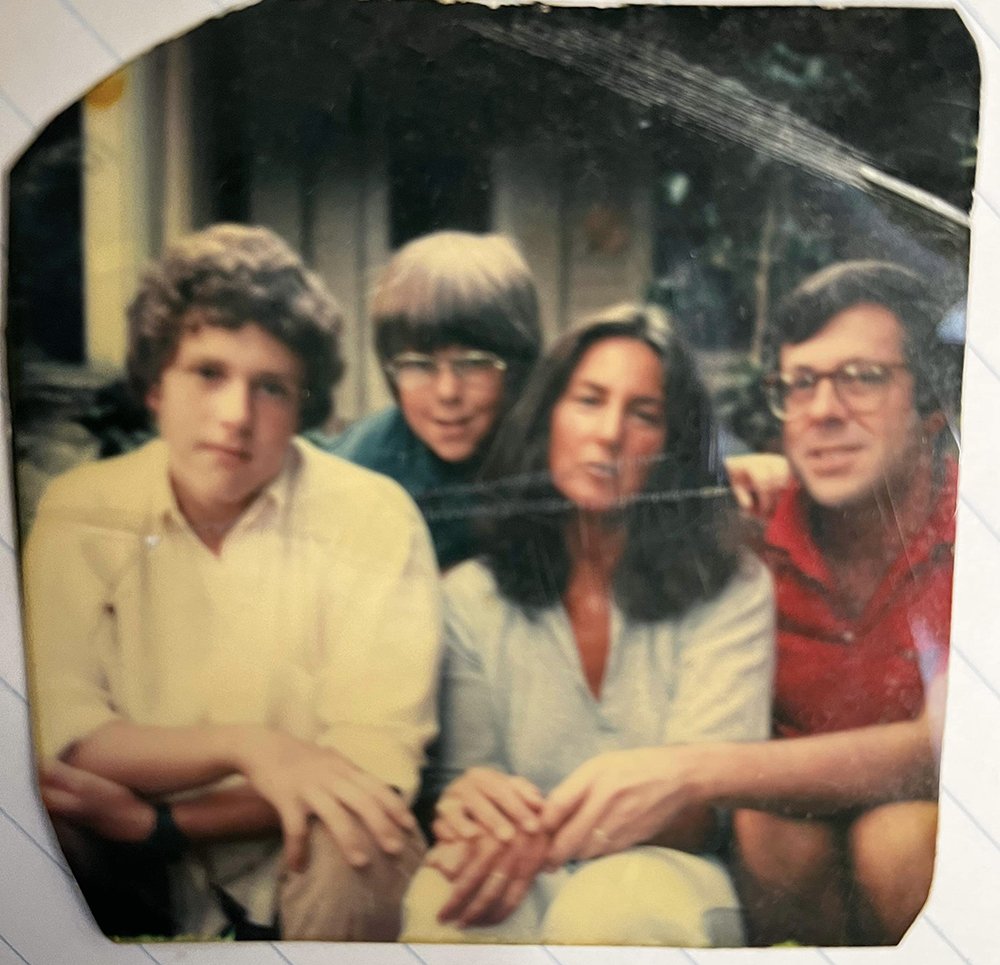Gunshots, Covid, polarized politics, Chinese balloons, war and earthquakes, floods and fires, unbridled rage--it’s quite literally in the air these days.
I’ve just finished reading my dear friend Erica Berry’s new book, out this month, called Wolfish: Wolf, Self, and the Stories We Tell About Fear. It’s an amazing work for anyone to have accomplished, but she’s only in her early thirties. Brava, Erica. Brilliant book.
When I was in my early thirties, I was ferrying my two young boys to Little League, Cub Scouts, science camp, hockey games, sleepovers and play dates. Figuring out how to make not-enough dollars stretch, baking bread and listening to Crosby, Stills and Nash, the Beatles, and the Band, fantasizing the writing life I never had.
So, though it is thrilling to be able to embrace my young friend’s success, it evokes a flood of memories and feelings I hadn’t expected, not the least of which is fear, a central theme in her narrative. Though she describes a life mixed with both ample amounts of anxiety and risk-taking, she had been raised as Little Red Riding Hood had, to walk out into the woods unafraid. Adventure and challenge were simply part of her being, part of a family that both sanctioned and encouraged it.
My anxious father was masterful in creating a fearful household. As a toddler he’d returned to this country from Italy during the first world war, with his mother and sister in the hold of a ship. Torpedoes flying, the women screaming, praying rosaries, giving their frightened babies sips of wine from nippled bottles—this was the story he told us about that trip, and what I feel was the beginning of his lifelong fears of just about everything.
Or maybe the fear came too as an unconscious reaction to his wild young manhood --dropping out of school, running with a gang, driving fast, I’m sure drinking too much—he knew what males were capable of. And as an overprotective Italian father in the fifties with daughters—well, boys were absolutely not to be trusted, so no dating allowed. Women and girls were to stay home, under the shielding eyes of men. Added to the patriarchal mores of the times, his fears limited and contained us, his family of females. We couldn’t ride bikes, learning to drive was dangerous (I only got my license at nineteen), there were just so many nos.
Fear was in our DNA.
My mom had grown up with a feisty Polish mother who’d had to cope with two severely disabled sons, losing a husband and his income as a young woman, going to work at several jobs, including at Sikorsky Aircraft during the war, to support her bereaved family. But despite my grandmother’s great courage, storms had always scared her, and she instilled that fear in my mother. So, she (my mother), quaking inside by her telling, held baby me in front of a window when the tempests came, and crooned to me how beautiful was the wildness we beheld.
She pushed me, not the comforting mom that my other friends had. Got my father to pay for the summer camp that changed me into an adventurer, dropped me off at a strange school in seventh grade, let me visit camp friends in New York City and Philadelphia in my teens, told me not to worry when I called terrified from Grand Central Station, that I’d lost twenty dollars, the only money I had.
“I’ll wire you more,” she said. “Don’t worry.”
The mixed messages were both conflict and challenge. My father fought his fears to become a successful businessman though it was a dark day in our household when a deal fell through. My mother inherited her mother’s feistiness, learned to drive our big Packard in her early thirties despite my father’s resistance, fought for me when the nuns at my high school complained that despite having all A’s, I wasn’t working hard enough, challenged the housewife mores of the time by spearheading drives for mental health advances and other causes.
I went away to college in Washington, DC where, though still under the protective eyes of the nuns who taught me, I experienced city living, so different from my sheltered suburban suffocation. With some trepidation, I and my new friends took advantage of everything this exciting city had to offer.
Meeting my now-husband at nineteen and then dating exclusively until marriage at twenty-two, I was insulated from the harrowing, groping encounters I’d had freshman year with dates. We were in love, and in 1964, getting married was what one did. My husband-to- be, a confident oldest male and a first-year med student, was fearless in his assurance that we would be fine, despite having only $350 to our name. To support us, I had a job lined up in a big inner-city school where I’d be making $4,000 a year as a teacher. To get to the job, I had to learn how to drive our stick-shift VW, which I had to master on our honeymoon, accomplished with much grinding of the gears.
Despite his confidence in me, I was terrified.
Answering to a name I’d been assigned only a week earlier, I was a teacher so young the staff confused me with the students. Struggling with the stick shift, the ordeal of finding a parking space near my school, juggling prep for six classes of fifty kids each, I started every day with anxious apprehension as well as the nausea and lightheadedness of a pregnancy I had yet to realize.
We lived in a dicey neighborhood in a second-floor walk-up with no yard, the elderly electrician who came to fix some light fixtures attacked me sexually, there was an attempted break-in while I was grocery shopping, and my school, a la Elizabeth Warren’s experience, let me go at Christmas because I was pregnant and therefore a dangerous influence on the girls in my freshman classes, four of whom were already pregnant.
As I write this, I cannot fathom how I coped. But upon reflection, I think I managed by challenging my fear every day, as my father must have, as my courageous grandmother and gutsy mother did. I knew I had to be there for my baby, and then a second one. But becoming a mother gave me new opportunities for fearfulness—whom of us has not worried about our children’s safety, their illnesses, their well-being, successes, and failures?
Their possible deaths.
The seventies roared in and with them, the welcome invitation to cast off our fears, our captivity, our bras, our imprisonment in the gender roles to we’d been assigned. It was an exciting and liberating time and I thrilled to the new freedoms, though the life I had did not invite much room for them except in my head.
Our move from university housing in Rochester where I’d been buoyed by the support and friendship of other young resident’s wives, flung me into a traditional, WASP-y community the seventies revolution had yet to reach. But for one dear friend my own age with whom I hiked and biked and drank lots of coffee, I was deeply different from all the other wives and women I met in our staid neighborhoods.
For the boys, I rallied, and submersed myself in their activities, was elected to the school board, searched for some more like-minded friends. Geoff’s asthma was a constant worry, but when he started at Hotchkiss, I went back to school to train as a psychotherapist. It was exciting to study psychological afflictions and learn to be useful to those who came to me for help.
Then, both boys were away at college. Geoff longed to go to Rome for his junior year, the perfect place to study his major, art history. When he called to tell me he’d gotten into the program he’d so wanted, I cried. It was 1986, there’d been bombs in the Fiumocino airport, the air in Rome would be toxic for his asthma.
“Mom, why are you crying? This is the happiest day of my life.”
“Because I’m so afraid something will happen to you.”
And something did, the worst of all fears realized. Raw grief consumed me for years; I was sure I would never be the same. And I am not. I think in a way, his death was curative—nothing could ever hold that much fear for me again.
***
Erica and I will be in conversation about her debut book on March 28 at 7:00 on zoom, for the Oblong Bookstore. It’s out on February 21, just a few weeks from now. Here’s what one review had to say about it: A Most Anticipated Book of 2023: Vulture, Salon, Bustle, The Rumpus, The Financial Times, Debutiful, and more!
"Wolfish starts with a single wolf and spirals through nuanced investigations of fear, gender, violence, and story. A GORGEOUS achievement." ―Blair Braverman, author of Welcome to the Goddamn Ice Cube (And Blair’s book is pretty great too!)




